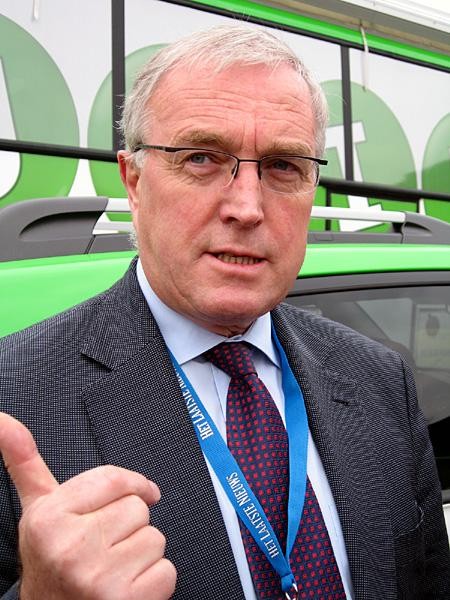McQuaid wants life long bans
UCI President Pat McQuaid has called for the introduction of life long bans for doping related...

UCI President Pat McQuaid has called for the introduction of life long bans for doping related offences. Following yet another summer of failed tests and allegations within the ProTour circuit, cycling is coming under increasing pressure to lift the ban from two years to life.
"I would certainly be in favour of doing that," McQuaid told BBC TV show Inside Sport. "As far as I'm concerned, it is a zero-tolerance policy."
McQuaid's sudden support of the life long ban comes as somewhat of a surprise, after he previously stated that the two year ban was sufficient for first time offenders. During this year's edition of the Tour de France which was rocked by the non-negative posted by Alexander Vinokourov after his dominant time trial, the 58 year-old Irishman said: "I think the punishment is tough enough because when guys get caught it's the end of their career."
This year's Tour was perhaps the most devastating edition since 1998 which was rocked by the Festina affair, and with riders continuing to fail tests, the cloud of suspicion over the rest of the sport refuses to budge, all of which has added to McQuaid's stance.
One could argue that Michael Rasmussen's contract termination while leading the world's biggest race was either the low or the high point in the fight against doping in cycling. It was alleged that the Dane had lied about his whereabouts and had purposely missed doping tests in the lead up to the event in June. These allegations led to Rabobank team management confronting the former mountain bike world champion and his subsequent dismissal for not following Rabobank's internal regulations.
The Tour had already seen a German rider uncovered as a cheat, and pre-race favourite Alexander Vinokourov had already left along with his entire team, yet the Rasmussen case was not to be the last the 2007 Tour saw of doping scandals: two more riders failed tests after that and the race's eventual winner, Alberto Contador, has been forced to defend himself against allegations of doping resulting from last year's Operación Puerto investigation.
These events have served as the catalyst for the UCI to make the war on doping its priority and McQuaid admitted that cycling had a drugs problem but was doing its utmost to beat it. Referring to, among other things, the anti-doping charter that all the professional teams have now signed, as well as the most rigorous testing regime in world sport as evidence of cycling's determination to win back public confidence.
Get The Leadout Newsletter
The latest race content, interviews, features, reviews and expert buying guides, direct to your inbox!